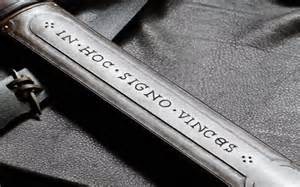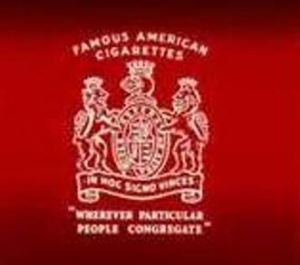 This is not an invented memory, not one of those autobiographic moments reconstructed out of other peoples’ recall and conjecture because you weren’t paying attention like that at the time. I was there and aware, capturing it all on synaptic memory tape. No one else had to describe it to me. Probably no one else even remembered, although there were hundreds of people there—an auditorium full of fellow high school graduates, their families and friends, and up on the stage the all-male, black-caped faculty. For all of them it was just another slow moment in an over-long ceremony to be suffered through, an event of no benefit nor interest to them, the most minor of awards—given first to signify its inconsequence.
This is not an invented memory, not one of those autobiographic moments reconstructed out of other peoples’ recall and conjecture because you weren’t paying attention like that at the time. I was there and aware, capturing it all on synaptic memory tape. No one else had to describe it to me. Probably no one else even remembered, although there were hundreds of people there—an auditorium full of fellow high school graduates, their families and friends, and up on the stage the all-male, black-caped faculty. For all of them it was just another slow moment in an over-long ceremony to be suffered through, an event of no benefit nor interest to them, the most minor of awards—given first to signify its inconsequence.
I didn’t know that such a thing as a religious medal was to be given. If it was in the program, I had missed it. There was quite a lot I was missing in those days. It was as if I had devised a new mode of meditation based upon paying no attention whatsoever. Alcohol helped. That was the year I discovered the circus of saloons. By its end I had pretty much deserted school altogether, doing only what I had to do in order to escape. Attending graduation was the terminal obligation. I was there because my parents were there. I would rather have given it a miss. I knew I would be skipping all the parties afterwards, using their excuse for a nice private pub crawl. There would be a few helpful envelopes with cash from aunts and uncles.
It was an all-boys Jesuit high school, all-white as well in those days. There were 190 in the graduating class. I remember that number for some reason. I wonder if it is right. A little research tells me that was the summer when—among the many other things I didn’t notice—the Supreme Court banned prayer in public schools, Duke Snider (as a Met) hit his 400th homerun, and the first Beatles songs hit the charts. When my name was read out, I was somewhere else, maybe listening in my mind to The Drifters “Up on the Roof.” (This was before songs were stored in little boxes attached to your belt, but in your head instead.) The guy beside me bumped me, “Hey, asshole, that’s you.”
“You what?” I asked, irked.
“Your name, some award.”
At the end of the row a priest was motioning for me to get up and come to him. “Go up on stage and get your religious medal,” he said. This is where the brain film comes into focus.
There was no applause, not as there would be for the sports, honors, and scholarship awards to others that followed. A sort of embarrassed hush fell over those assembled. What sort of boy would win such an award? The Irish among them would know that mine was an Irish surname, and maybe their women would take some sort of twisted pride. “And the medal for the Most Deceived” goes to one of ours. “God bless him.” Others would just see the ultimate kiss-ass, a priesty-boy, a genuflector. It really didn’t matter. None of them knew me. None of them mattered. By the afternoon’s end they would all be history.
You can’t walk fast in a graduation gown, but I was in no hurry. This was my valedictory march. Any who cared could take a long look, because the lanky boy strolling down the inclined aisle to the stage had really already vanished. It was his ghost in a gown who mounted the steps to the stage. Whoever it was they thought they saw accept the small blue box and shake hands with the priest they would never see again. He no longer existed.
Albeit a Catholic school, there was but one religious club there, the Sodality, a small group of boys who met weekly and practiced the meditations of St. Ignatius. In three of my four years in the group I had been elected its prefect, a meaningless position no one else wanted. Meditators don’t need a leader. I had joined the Sodality because I had liked the idea of meditation. Then I had learned to like meditating as well, the practice of escape. I had a feel for it, though my destinations were rarely religious or even spiritual. It was like going to a private room and turning the lights out one by one until there was just darkness and no thought.
Perhaps because the school was such an externally religious institution, there was no need for a show of internal sanctimony. That wasn’t the Jesuit way. Seeing as we were all born and bred Catholic boys, there was no point in being extreme about it. The proper protocols were observed, but in a manly, non-sentimental mode that frowned upon any public display of spirituality. I guessed that my stint as Sodality prefect had made me a contender for the award that had few other candidates. Off hand, I couldn’t think of anyone else I would have nominated or wished it on. Being named holiest boy was hardly a prize.
Or perhaps there was another motive. As I climbed the stairs to the stage I could see hanging on the curtain behind the seated faculty the school’s gold and blue and white banner, which included the Jesuits’ heraldic logo, a twining together of the letters IHS, signifying the order’s motto—In Hoc Signo Vinces. In this sign conquer. The priest who stood up to hand me the medal was the Father Provincial. As he shook my hand he said, “You haven’t come back to see me, John.” In Hoc Signo Vinces in deed. These guys didn’t give up.
The previous winter I had taken the battery of exams to enter the Jesuit novitiate. A snowy Saturday. I was badly hung-over. The testing took all day. There was a rigorous Latin translation section along with general intelligence and psychological multiple-choice tests. I hadn’t told anyone I was doing this. It was a secret plan of escape. Escape from what? Why, the real world, of course—adulthood and all of its choices. With this one decision I could avoid making most of the rest. Or something like that. My older brother Jim was already in a seminary. I knew I’d look good in the long black soutane and high collar. It was a viable path, a voluntary surrender. It had nothing to do with Jesus.
The only time I had met Father Provincial had been several weeks after that entrance exam. I was pulled from class and escorted to his office in the mansion beside the school. I had no idea where I was going or why. The double doors to his office were of black iron filigree and etched frosted glass. Father Provincial was a small man. He wanted to discuss my test results. I figured I’d booted the Latin part. After four years of indoctrination, the official language of the Church was still my enemy. But no, I’d passed the Latin, marginally. It was the psych part I had flunked. He read to me the analyst’s conclusions—something to do with an abnormally high honesty quotient and problems with authority figures. I missed much of it. The room had beautiful arched casement windows of leaded glass with stained-glass insets, the work of artisans from another century. I went there.
As Father Provincial read, it dawned on me that what he was saying was that I had been diagnosed as too crazy to be a priest, and this struck me as funny, a catch-22 joke on me. The anonymous, impersonal analyst had gotten it right; I was impressed. In his 3M web of true-or-false questions he had netted an imposter. I had no business pretending to be priest material. I was damaged goods, not worth the risk of investment. (Vestments—the medieval colored costumes of the sanctuary that for years as an altar boy I had assisted priests to don in ritual order—how silly they would have looked on me.)
“I was not supposed to read you that,” Father Provincial said. He was a pleasant looking little man with tired eyes. “But we can make it all right. Some psychiatric counseling, another round of tests.” He was trying to be nice, which seemed either out of character or out of place.
“No, that’s alright, father. Don’t go to the trouble. I accept the decision. Thank you.” And I got up to leave. Father Provincial objected, followed me to the door. Surely I would reconsider, think about it, come back to see him again and discuss it. The order would pay for everything. Actually, I remember those fancy French double doors from this side, looking out as I was leaving. There was sunlight in the hall beyond them. Opening and walking through them freed me.
I had kept my application and rejection secret, never told my parents; and I had no friends, either male or female, close enough to speak with about something so personal. So I had no explaining to do or backtracks to cover. I also had no regrets. Whereas before the priesthood had seemed a logical, if not natural, progression, it now seemed naively ludicrous. I never went back.
After the graduation ceremony I turned in my rented cap and gown, gave my diploma (embossed with the IHS logo) and box with the medal to my mother, and told her I’d be home in an hour or two for the small family party she’d planned. I felt like walking, I said. The closest saloon was down on the corner of Main. At the bar I ordered a shot and a beer back and pulled my last Pall Mall from its pack. Before crumbling up the red pack as trash I looked at the heraldic crest on it and its scrolled Latin caption—In Hoc Signo Vinces. I toasted my old self goodbye.
